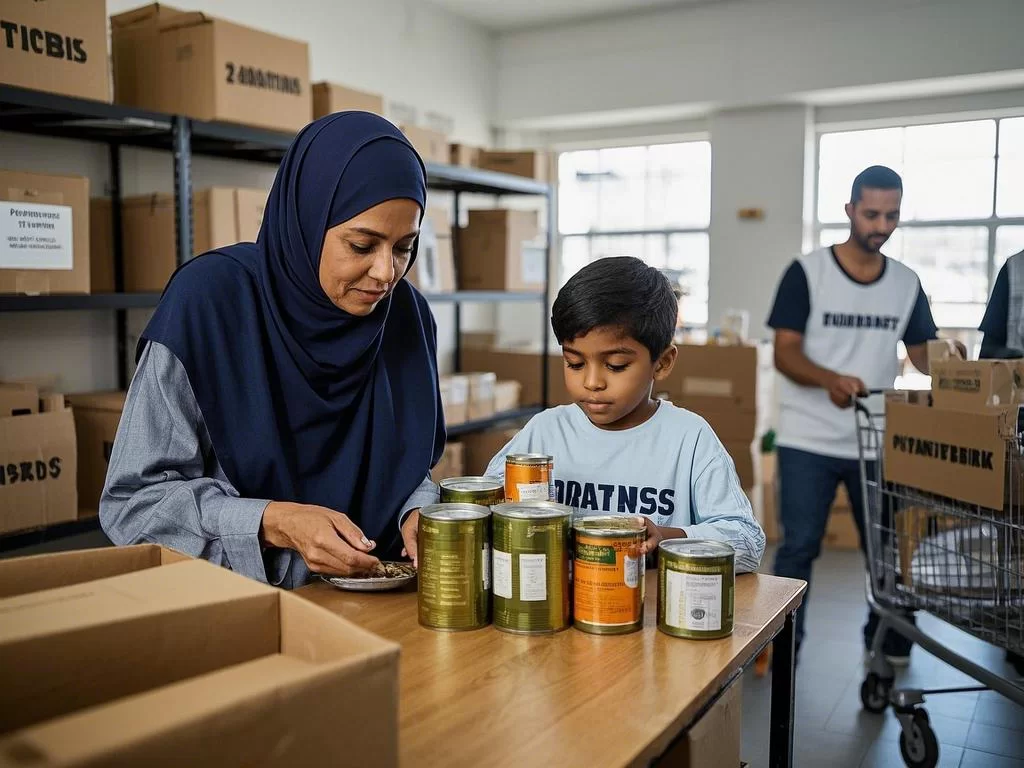Introduction
Family is the foundation of our lives. A strong family bond is not just about having people who share the same blood; it is about emotional support, love, and guidance that shape us into better individuals. In today’s fast-paced world, many people struggle to maintain healthy family relationships due to busy schedules, digital distractions, and other life challenges. However, the importance of having a good family relationship cannot be overstated.

In this article, we will explore the 10 key reasons why maintaining a strong family bond is essential for a happy and fulfilling life.
1. Provides Emotional Support

A good family relationship offers a strong emotional support system. When life gets tough, having a loving family that understands and supports you can make all the difference.
- Family members provide encouragement during tough times.
- They offer comfort and reassurance when facing emotional distress.
- A sense of belonging helps reduce stress and anxiety.
Children who grow up in emotionally supportive families tend to develop better coping skills and self-confidence, enabling them to navigate life’s challenges with resilience.
2. Improves Mental Health
A strong family bond significantly contributes to better mental health. Knowing that you have people who care about you reduces feelings of loneliness, depression, and anxiety.
- A supportive family helps in overcoming stress-related issues.
- Engaging in positive conversations with loved ones boosts emotional stability.
- Family bonds can prevent mental health disorders caused by isolation.
When family members communicate openly and show affection, it creates a safe space where everyone can express their emotions freely.
3. Strengthens Communication Skills
Healthy family relationships promote open and effective communication. Good communication is the foundation of strong relationships and leads to better understanding among family members.
- Encourages active listening and empathy.
- Helps resolve conflicts peacefully.
- Builds confidence in expressing thoughts and emotions.
Children who grow up in a communicative family environment develop better interpersonal skills, which benefit them in both personal and professional relationships.
4. Encourages Positive Behavior

Family plays a crucial role in shaping a person’s values, morals, and behavior. When children grow up in a positive family environment, they learn how to treat others with kindness and respect.
- Family members serve as role models for younger generations.
- Reinforcement of ethical values leads to responsible behavior.
- Supportive parents and siblings encourage good decision-making.
A well-connected family nurtures values such as honesty, integrity, and compassion, which are essential for building strong character.
5. Increases Sense of Security and Belonging
A close-knit family provides a sense of security, which is crucial for emotional and psychological well-being. Feeling safe and valued within a family builds self-confidence and resilience.
- Knowing that family members are there in times of need fosters emotional strength.
- Children with strong family ties feel more secure and less fearful.
- A strong sense of belonging enhances happiness and life satisfaction.
People who feel connected to their families tend to have healthier relationships outside their homes as well.
6. Supports Physical Health and Well-Being

Good family relationships contribute to better physical health. Studies have shown that people with strong family bonds tend to have better overall well-being.
- Family members encourage healthy habits like balanced diets and exercise.
- Reduced stress levels lead to lower risks of heart disease and other health issues.
- A strong support system helps in faster recovery from illnesses.
When you feel loved and cared for, it has a direct impact on both your emotional and physical health.
7. Enhances Social Skills and Confidence
A well-bonded family nurtures social skills and boosts self-confidence, enabling individuals to build meaningful relationships outside the home.
- Encourages healthy interactions with others.
- Builds a sense of self-worth and identity.
- Helps in adapting to different social environments.
Children from close-knit families are more likely to have positive social interactions and excel in teamwork and leadership roles.
8. Teaches Conflict Resolution and Problem-Solving
Disagreements are a part of every relationship, but in a healthy family, conflicts are resolved through understanding and communication rather than anger and resentment.
- Teaches patience and compromise.
- Encourages finding peaceful solutions to problems.
- Strengthens relationships rather than creating divisions.
By learning how to resolve conflicts constructively, family members develop essential life skills that help in handling challenges outside the home.
9. Creates Lifelong Memories and Traditions

Spending time with family helps in creating cherished memories that last a lifetime. Traditions and shared experiences strengthen emotional bonds.
- Family traditions create a sense of continuity and identity.
- Shared moments bring happiness and reduce stress.
- Celebrating special occasions together fosters unity.
Whether it’s a simple family dinner or a vacation, these moments shape one’s childhood and leave a lasting impact.
10. Acts as a Strong Foundation for Future Generations
A well-bonded family sets the stage for future generations by instilling values that are passed down over time. The way a family interacts today influences how children will build their own families in the future.
- Children raised in loving families tend to replicate the same in their future homes.
- Positive family relationships ensure generational emotional well-being.
- Creates a cycle of love, respect, and care across generations.
Building a strong family bond today ensures a better and happier life for the generations to come.
Conclusion
A strong family relationship is one of the most valuable assets a person can have. It plays a vital role in emotional, mental, and physical well-being, ensuring that individuals grow into confident and responsible members of society. From providing emotional support to teaching life lessons and creating lifelong memories, the importance of a good family relationship cannot be underestimated.

In today’s fast-paced world, taking time to nurture family bonds is essential. A happy family creates a happy life!
FAQs
1. How can I strengthen my family relationship?
Spend quality time together, communicate openly, show appreciation, and support each other emotionally.
2. What are the key signs of a strong family bond?
Trust, mutual respect, good communication, support during tough times, and shared values.
3. Can strong family relationships reduce stress?
Yes! A supportive family provides emotional security, which significantly lowers stress levels.
4. Why is family important in personal development?
Family shapes values, behaviors, and social skills, contributing to personal growth and self-confidence.
5. How does family influence mental health?
A loving and supportive family helps reduce anxiety, depression, and loneliness, promoting overall mental well-being.
